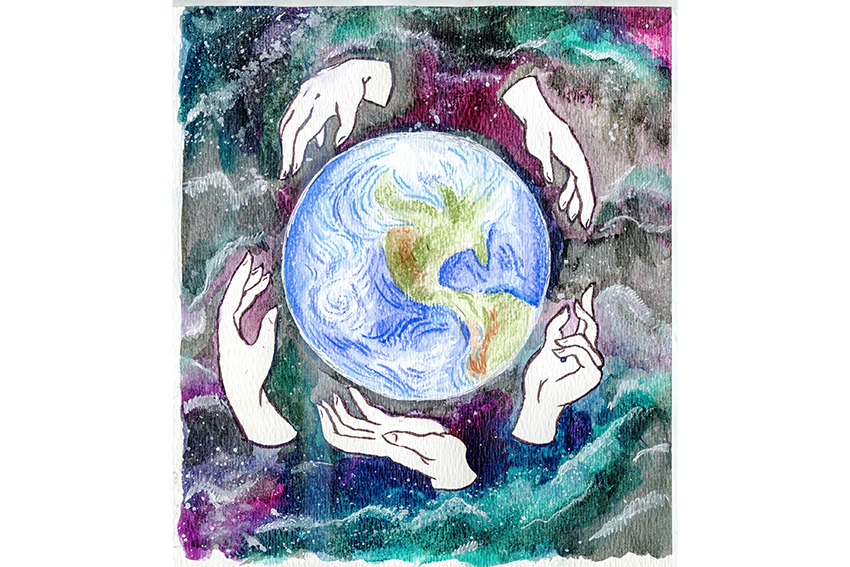University of Texas scholars are offering a new solution to addressing environmental crises: hope.
The Radical Hope syllabus, formatted similar to a college syllabus, is an online collection of resources for those interested in ecological issues and sustainability. The syllabus is the product of the two-day “Radical Hope” conference held in Germany in July 2017 by the The Rachel Carson Center and UT. The conference brought scholars from around the world to exchange ideas about the role of hope in addressing environmental issues.
With the help of history graduate student Alina Scott, Erika Bsumek, project creator and history professor, developed the Radical Hope syllabus website to open the discussions and conversations that occurred at the conference to the public. Each of the presenters contributed to a section of the syllabus and included a description of their work, a list of resources and their definition of “Radical Hope.”
The idea of “Radical Hope” comes from the title of a book written by Jonathan Lear from the University of Chicago, Bsumek said.
“Lear defines ‘Radical Hope’ in a very specific way — how do you maintain hope in the face of extreme desperation, which is essential for human survival?” Bsumek said. “We took the core idea as it applies to environmental issues and used it as an expansive term people could define in their own way.”
Scott said “Radical Hope” is a conscious effort to be informed about the environment.
“‘Radical Hope’ is not a gleeful dismissal or ignorance of the gravity of our climate situation, but rather, it’s a heightened awareness of those things and a willingness to believe that it can be different,” Scott said.
Architecture professor Allan Shearer is also a contributor to the project. His section of the syllabus focuses on environmental security. Shearer defines “Radical Hope” as a future that offers people more choices.
“The world today can feel overwhelming,” Shearer said. “Climate change, political discord and economic disruption can make a person, community or society overwhelmed and even imperiled. If you don’t provide options to improve the condition, you instill a sense of paralysis.”
The syllabus provides voices and viewpoints to overcome this overwhelming uncertainty, Shearer said.
Next spring, a new course based on the syllabus will be offered through the UT Global Classrooms program. Bsumek and John Barry, a professor from Queen’s University Belfast, will meet with students in a virtual classroom to work on collaborative projects related to environmental history and contemporary environmental issues.
Bsumek said the Radical Hope syllabus is a living project, and anyone interested in adding a section can contribute to the syllabus.
“Sometimes in academia we tend to have insular conversations with other researchers,” Bsumek said. “A project like this has a way to open up what we are talking about to people around the world. The syllabus is constantly growing, and our hope is that people will contact us and we will be able to put their expertise up on a certain unit in the syllabus.”





















